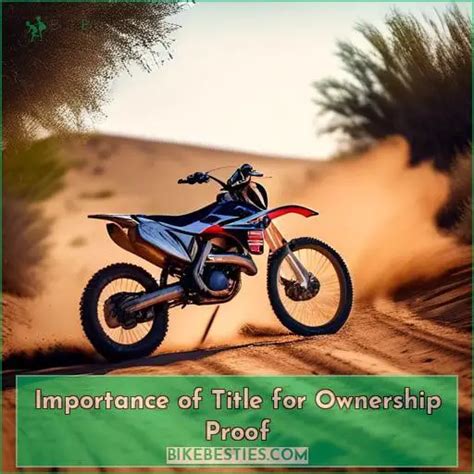Safe & Legal Dirt Bike Ownership at 14: A Comprehensive Guide for Young Riders and Parents
Owning a dirt bike at 14 can be an incredibly exciting experience, offering freedom, adventure, and a fantastic way to build skills and confidence. However, it's crucial to understand the legal and safety aspects before you even think about revving the engine. This guide provides a comprehensive overview of what you need to know to ensure safe and legal dirt bike ownership for 14-year-olds.
What are the Legal Age Restrictions for Dirt Bike Riding?
This is the most crucial question. Unfortunately, there's no single national answer in the United States. Laws regarding dirt bike operation vary significantly by state and even by county or municipality. Some areas may have age restrictions, licensing requirements, or limitations on where you can ride. Others may have stricter rules regarding engine size or the type of off-road vehicle.
Your first step is to research your local laws. Check your state's Department of Motor Vehicles (DMV) website, your county's government website, and local ordinances. Look for information on off-road vehicle (ORV) regulations, motorcycle licensing, and age restrictions for operating motorized vehicles.
What are the common legal restrictions for dirt bike riding at 14?
Many areas have age restrictions for operating dirt bikes on public roads. Even if the age restrictions don't apply to private property, safety should still be paramount. Common restrictions include:
- Minimum age requirements: Some jurisdictions may require riders to be 16 or older to operate a dirt bike on public roads or designated trails.
- Licensing requirements: Even on private land, some areas require a motorcycle license, regardless of age. These licenses often involve training and testing.
- Safety gear requirements: Helmets are almost universally mandatory, but some areas may require additional safety gear like eye protection, gloves, and long sleeves and pants.
- Restrictions on riding locations: Riding on public roads or certain trails might be prohibited, even with a license. Always check local ordinances for designated riding areas.
How Can I Safely Operate a Dirt Bike at 14?
Even if you're legally allowed to ride on private property, safety must be your top priority.
What safety gear should I wear?
Investing in proper safety gear is non-negotiable:
- Helmet: A DOT-approved helmet is essential. Choose one that fits snugly and comfortably.
- Goggles or Eye Protection: Protect your eyes from dust, debris, and potential impacts.
- Long-sleeved shirt and long pants: These protect your skin from scrapes and abrasions.
- Gloves: Improve grip and protect your hands.
- Boots: Ankle-supporting boots offer protection from impacts.
What safety training should I undergo?
Formal safety training significantly reduces the risk of accidents. Consider:
- Motorcycle Safety Foundation (MSF) courses: While geared towards street bikes, many principles apply to dirt bikes. Check if they offer courses relevant to off-road riding.
- Local off-road riding schools: These schools teach specific techniques for dirt bike operation, including handling, safety, and trail etiquette.
- Experienced rider mentorship: Learning from a skilled and responsible adult can be invaluable.
Where are safe places to ride?
Always ride in designated areas:
- Private property: Ensure you have permission from the landowner.
- Designated off-road riding areas: Many states have designated areas for off-road vehicles. Check with local authorities for locations near you.
- Organized riding events: Supervised events provide a controlled environment for learning and riding.
What About Insurance for a Dirt Bike?
While not always legally required for private land use, insurance can offer significant financial protection in case of accidents or injuries. Contact your insurance provider to discuss coverage options for off-road vehicles.
Maintaining Your Dirt Bike
Regular maintenance is vital for both safety and longevity. Learn the basics of dirt bike maintenance, or seek help from a mechanic.
Conclusion: Responsible Dirt Bike Ownership at 14
Owning a dirt bike at 14 can be a rewarding experience, but it requires responsibility and a commitment to safety. By understanding and complying with local laws, investing in proper safety gear, and obtaining adequate training, you can ensure both a safe and enjoyable riding experience. Remember, always prioritize safety, and never ride beyond your skill level. This guide serves as a starting point—always verify your local regulations and consult with experienced riders and legal professionals for further guidance.

